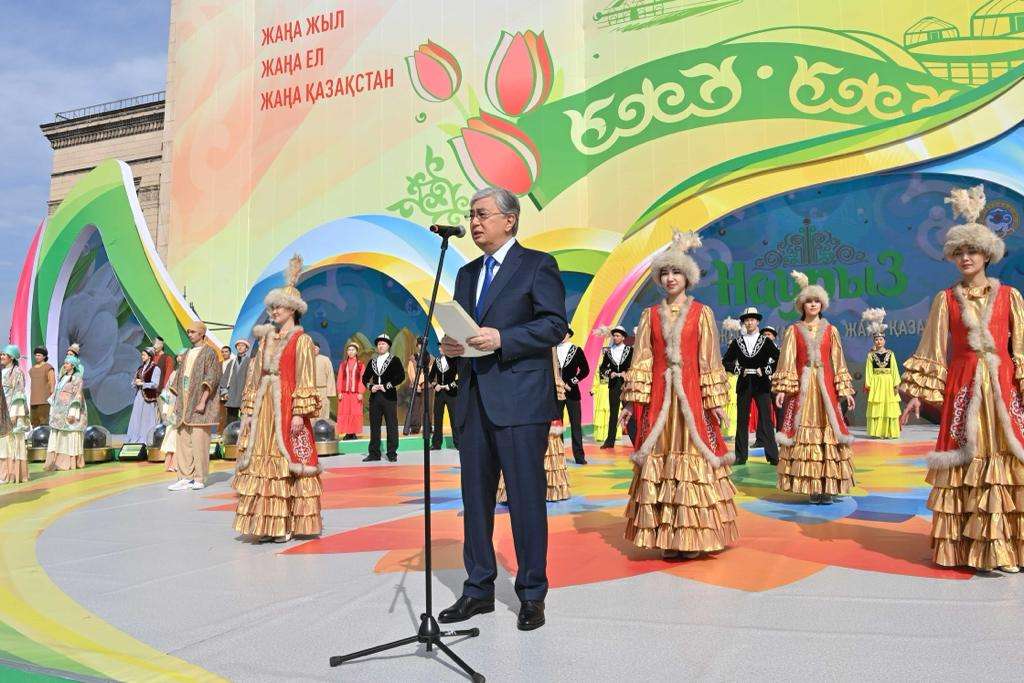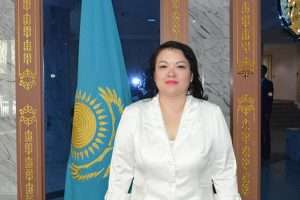
The religious sphere is developing dynamically, almost everywhere around the globe, including the Central Asia region, in both positive and negative trends. These trends are constantly impacting the lives of our citizens, and it is the task of the state to analyze current processes and prevent conflicts. That is precisely our reality in my homeland Kazakhstan.
Nowadays, sixteen years after the foundation of Kazakhstan’s first authorized body in the field of religion, “The Committee on Religious Affairs”, and eleven years after a new modern law “On Religious Activities and Religious Associations” was passed, Kazakhstan is further advancing religious freedom norms and freedom of worship steps.
Three decades ago, this was not an obvious path. Back in the winter of 1991, when Kazakhstan became independent, the concept of “religious activity” for the young post-Soviet state was a novelty. The previous law “On Freedom of Religion and Religious Associations” was one of the first laws of sovereign Kazakhstan. It was adopted on January 15, 1992, just one month after gaining independence. At that time, it was greatly needed, as the numerous Soviet-era restrictions and requirements for members of faith communities and religious associations were repealed.
But over time, new problems began to arise. For Kazakhstan, now freed from behind the Iron Curtain, the spread of extremist movements and the emergence of new organizations with a chaotic ideology, including those that advocated the refusal to use the services of the healthcare system, and the severance of relations with family members if they were not co-religionists, became a big challenge. Therefore, attempts were repeatedly made to introduce appropriate amendments to the Law “On Freedom of Religion and Religious Associations”, after the first stage of state-confessional relations, which was distinguished by euphoria from the post-Soviet burst of freedom of religion.
All of this came against a background of the big question, regarding the relationship between the state and religious associations, in the awakening post-Soviet era. In general, it can be noted that not all Kazakhstanis were ready for such a turn of events. Some of our fellow citizens were afraid of a return to Soviet prohibitions. There was a rejection of the need to streamline the activities of religious associations. Actually, the first version of the Law “On Freedom of Religion and Religious Associations” did not contain any restrictive norms.
Fast forward, two decades later, when the Committee for Religious Affairs was created, again there were disputes in our society about its necessity. After all, the state is effectively separated from religion in Kazakhstan, and cannot interfere in this area – some reasoned. However, now, after 16 years of the Committee’s conduct, we can determine it was a major right decision on behalf of the state. The main argument is the constant need to analyze the religious situation in our region under the changing internal and external circumstances.
That said, and as the leaders of the world’s central faiths will converge on Kazakhstan’s capital city, Nur Sultan, in mid-September 2022 for the Congress of Leaders of World and Traditional Religions, the standards established by the Committee and subsequent legislation will be on display for all. Moreover, against a background of ongoing multi-national religious persecution, as well as faith-based oppression around the globe, such clarity, and such protected freedoms are not only vital for our emerging democracy under the leadership of President Kassym-Jomart Tokayev but essential for world stability as a whole.
Accordingly, the lately amended Constitution of Kazakhstan, approved by a nationwide referendum last June, enshrines the right of everyone – that is, citizens of the country, foreigners, and stateless persons – to freedom of conscience. The most basic argument for such legislation is to preserve human rights. This vital law not only preserves the individual and communal freedoms of citizens, but moreover, it criminalizes the prosecution of religious hatred as well as other forms of racism and discrimination.
Beyond the rather grandiose humanitarian ideas, there are more practical applications when it comes to policy and planning. We need to ensure a comprehensive understanding of the needs and concerns of different religious groups. In terms of day-to-day life, government provision for such bureaucratic functions is vital in the provision of equal services to different communities, encouraging diverse religious festivals, hiring employees without incurring discrimination in the workplace or academic institutions, ensuring that religious sensitivities are protected, and of course that members of different faiths can work side by side in government and the civil service reflecting a mirror of our heterogeneous society.
Shortly, there is true justification to specifically set in a new law, the role of education. There is no intention, of course, to educate belief. But still, there is an essential need to educate tolerance values. And this can only be done with learning and understanding. Here I believe lies the greatest need for flexibility on the separation of religion and state. While we need not allow public funds to be used for preaching beliefs, they must be allocated for teaching tolerance. I appreciate this is a thin line, but we must balance it as a society.
Ultimately, the state’s seemingly paradoxical interference to ensure freedom of religion recognizes one crucial reality. Life does not stand still. All possible measures to prevent chaos in such a delicate area, as religion, should be taken. The soon arrival to Kazakhstan of religious leaders such as His Holiness Pope Francis, the Imam of al-Azhar Ahmed Mohamed Ahmed El-Tayeb, the Patriarch Theophilos III of Jerusalem, Jewish Chief Rabbis, and distinguished others – is a testament to the will of the people for tolerance and freedom, and at the same time, it is a huge reminder to the important role of the state in protecting those freedoms.
Zhanna Onlasheva is the Chief Consultant of the Mazhilis (The Parliament of the Republic of Kazakhstan). She graduated Ph.D. in Law on the topic of “Establishment of Kazakhstan as a secular state”, and served her country for 14 years, winning the title of “Best Civil Servant of the Republic of Kazakhstan in 2017”.






































